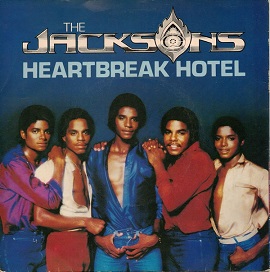
"This Place Hotel" is a 1980 song by the Jacksons, written by Michael Jackson. While his brothers did not sing background vocals, they were credited with playing percussion on the album while brother Tito contributed a guitar solo. The song has a tempo of 98 beats per minute, making it notably slower than many of the other disco-based songs on the album. In the song, the protagonist speaks of a time when ten years ago, he took his girlfriend to a hotel for a romantic night—only to find out that it was designed specifically to break couples up. The staff at the hotel gave the girl the impression that he had cheated on her with someone else, something he did not do, which caused her to break up with him in the hotel.
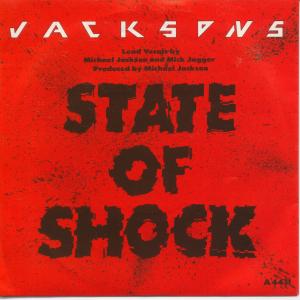
"State of Shock" is a 1984 single by the Jacksons and Mick Jagger. It was written by Michael Jackson and Randy Hansen. The song was originally sung by Michael Jackson as a duet with Freddie Mercury, and was later slated for the Thriller album in 1982; however, due to differing time schedules, Jackson ended up recording it with his brothers and Jagger instead.

The Ultimate Collection is a box set by American singer and recording artist Michael Jackson. It was released on November 16, 2004, by Epic Records and consists of four audio CDs and one DVD. The album sold 57,000 copies in 2004 alone, and on May 16, 2013, it was certified Platinum as a multi-disk package by the Recording Industry Association of America (RIAA) for physical shipments of 200,000 copies in the United States. The DVD marked the first physical release of Live in Bucharest: The Dangerous Tour, initially an HBO concert special in 1992, which was later released as an individual title on July 25, 2005. The set also features a 60-page booklet that contains photos and text by the American music critic Nelson George summarizing the artist's career.
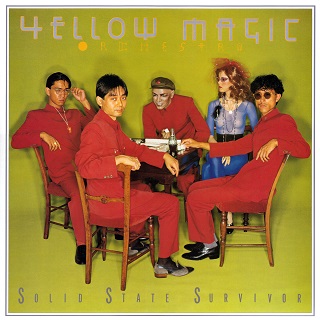
Solid State Survivor is the second album by Japanese electronic music band Yellow Magic Orchestra, released in 1979. Later, Solid State Survivor was released in 1982 in the UK on LP and cassette, also in 1992 in the United States on CD, but many of the songs from this album were compiled for release in the US as the US pressing of ×∞Multiplies (1980), including the tracks "Behind the Mask", "Rydeen", "Day Tripper", and "Technopolis". Solid State Survivor is only one of a handful of YMO albums in which the track titles do not have a Japanese equivalent.
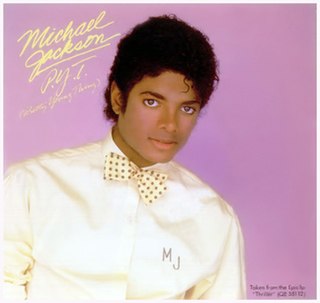
"P.Y.T. " is a song by American singer, songwriter and dancer Michael Jackson, released as the sixth single from his sixth album, Thriller (1982). The song was written by James Ingram and Quincy Jones.

"Butterflies" is a song by American singer and songwriter Michael Jackson. It was written and composed by Andre Harris and Marsha Ambrosius, and produced by Jackson and Harris. The track appears on Jackson's tenth studio album, Invincible (2001). The song also appeared in The Ultimate Collection (2004). "Butterflies" is a midtempo ballad. The single received generally positive reviews from music critics; some music reviewers described the song as being one of the best songs on Invincible while others felt that it was a "decent track".
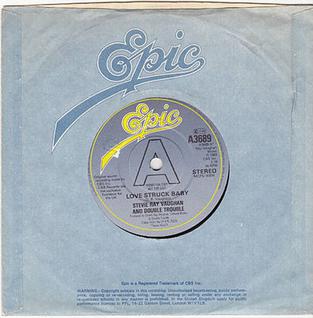
"Love Struck Baby" is a blues rock song performed by Stevie Ray Vaughan and Double Trouble. Vaughan wrote the song about the night that he moved in with his then-wife, Lenny. The track was produced by Vaughan for the band's debut album Texas Flood, recorded in Los Angeles. "Love Struck Baby" was the first single from Texas Flood, released by Epic Records in the United States and United Kingdom. In the song's accompanying music video, bassist Tommy Shannon and drummer Chris Layton are shown relaxing at a bar before Vaughan enters and starts performing the song for a crowd. "Love Struck Baby" was a concert favorite for fans of the band; Vaughan would frequently play the guitar behind his head for part of the solo.
"Working Day and Night" is a song by American recording artist Michael Jackson. It is the third track from his fifth studio album, Off the Wall (1979). The song was written by Jackson and produced by Quincy Jones, with Jackson in the role of co-producer. Despite not being released as a single, Jackson performed the song live for his first two solo tours. It is also featured on the video game Michael Jackson: The Experience. The song has been sampled by several artists. It was remixed and released on the remix/soundtrack album, Immortal, in 2011. In 2014, producer Timbaland sampled percussion and breaths from the song in the duet version of "Love Never Felt So Good" ; the duet was released as a single from Xscape.
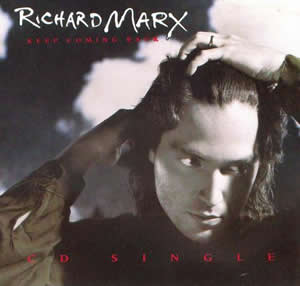
"Keep Coming Back" is a song by American singer-songwriter Richard Marx. It appears on his third solo album, Rush Street, and was both written and produced by Marx. The lyrics to the song detail a man's unrequited love for a woman. Working with musicians such as Luther Vandross and keyboardist Greg Phillinganes, Marx sought to explore different musical territory with this single, stating that "I wanted to write an old-fashioned R&B song."

"Behind the Mask" is a 1979 song by the Japanese synth-pop group Yellow Magic Orchestra. The composer, Ryuichi Sakamoto, wrote the first version for a television commercial. A new version with lyrics by Chris Mosdell was released on the 1979 Yellow Magic Orchestra album Solid State Survivor. In the US and the UK, "Behind the Mask" was released as a single from the 1980 album X∞Multiplies.
"It's the Falling in Love" is a song by American recording artist Michael Jackson with guest vocals by R&B singer–songwriter Patti Austin. It is the ninth track from his fifth studio album, Off the Wall (1979). It was written by Carole Bayer Sager and David Foster, with production by Quincy Jones.
"Long Way to Go" is a song by American singer Gwen Stefani and American rapper André 3000. The song appears as the closing track on Stefani's debut studio album, Love. Angel. Music. Baby. (2004). It was released on November 23, 2004, along with the rest of Love. Angel. Music. Baby. by Interscope Records. The track was written by both Stefani and 3000, while 3000 was the sole producer of the track. Despite being scrapped from André 3000's OutKast studio album, The Love Below (2003), Stefani and 3000 finalized a reworked version of the song to be included on the former's album. The song prominently features a sample from Martin Luther King Jr.'s 1963 "I Have a Dream" speech in its closing outro. King is credited for contributed lyrics to the song. Musically, "Long Way to Go" is influenced by electronic music and alternative hip hop, with partial influence from both dance music and soul music.









